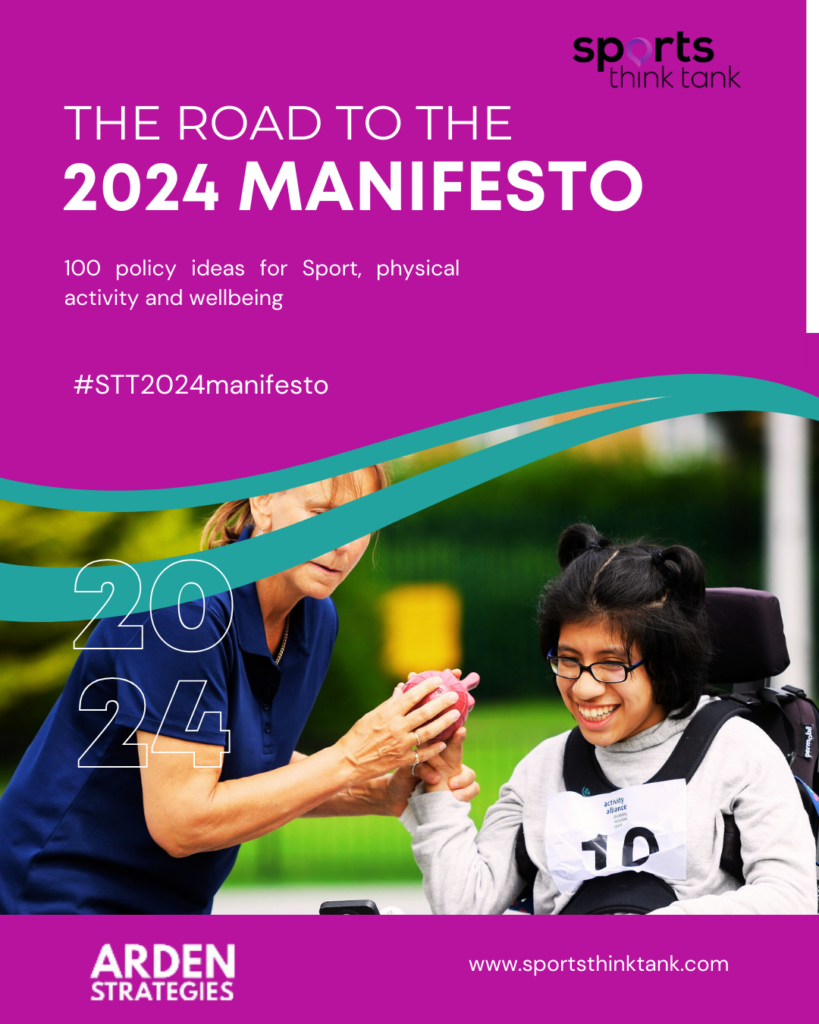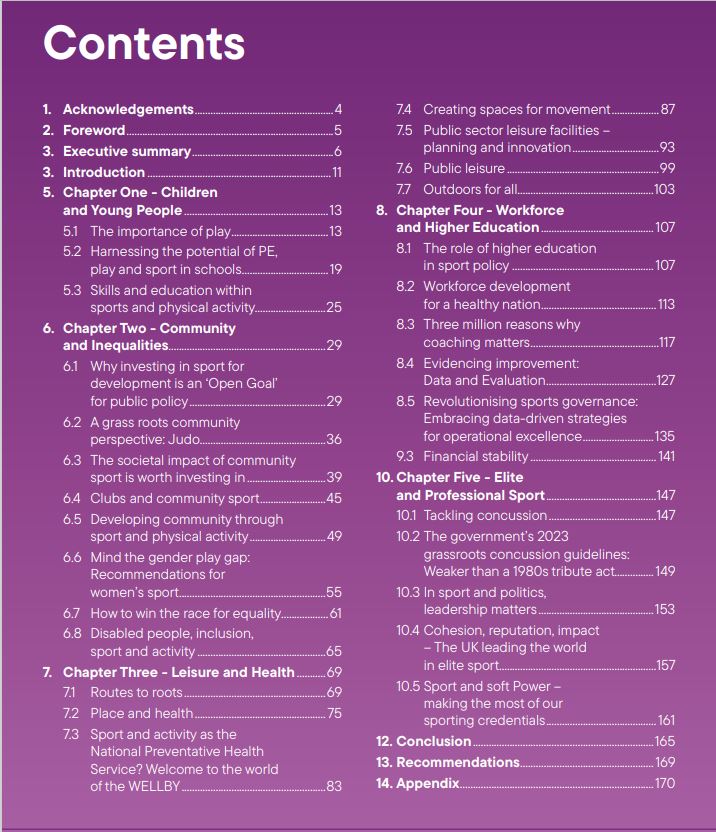Sported has joined calls for a new deal for sport in a paper published by the Sports Think Tank: The Road to the Manifestos 2024.
Deputy CEO Tom Burstow writes powerfully on why it is worth investing in the incredible societal impact that community sports groups make to deliver on government policy, making a difference to young people, to our communities and to creating a healthier nation.
It joins analysis from a number of key organisations in the sector, with 100 ideas that can transform the role of sport, physical activity and wellbeing as an effective and affordable driver of change.
Co-ordinated by the Sports Think Tank, it is our plea to policymakers for greater focus and support for the work undertaken by grassroots clubs and organisations across the UK who are so often excluded from policy and programmes

It is being shared with political parties, advisors and sectoral partners to stimulate interest but also raise the level of conversation.
Tom Burstow, Sported Deputy CEO, said: “The way grassroots sport in particular can positively shape our communities is under-valued and over-looked at government level, both nationally and locally. Getting people active has been the headline act but the impact stretches way beyond that: in growing cohesion, in transforming the aspiration for our young people, in creating safe spaces where all are welcome and none are excluded.
“But it needs investment and recognition from across different policy areas. It’s vital that those with power and influence shift the way they look at the community organisations delivering sport and physical activity and realise the difference it makes.”
The Sports Think Tank asked each organisation to create resource-neutral policies which they would want the UK’s political parties to champion in their forthcoming manifestos and first 100 days in office.
The policy calls range from cutting red tape, raising standards and suggestions on how to redirect existing funding to more specific proposals – such as elevating the status of PE within the curriculum, include active environments in planning policies and changing the Highway Code.
Many of the contributors also call for greater governmental intervention to help drive much needed change in the sector itself. There are proposals to introduce new legislation and more regulation to make certain policies mandatory and improve the performance of the sector.

Addressing the deep-seated inequalities across the sector is another common theme among the proposed policies, as are ensuring better provision for children and young people, embedding activity in Further Education and moving the sector towards health and wellbeing, especially through prevention in integrated care systems.
Commenting on the publication of the document, Kim Leadbeater MP, Chair of the All-Party Parliamentary Group for Sport, said: “It’s not hyperbole to claim that physical activity remains one of the most under-used resources we have at our disposal when tackling some of our most persistent challenges, from easing the pressures on the NHS, tackling crime and improving economic productivity to finding ways to level up.
“That’s why this is a crucial document. It brings together ideas, proposals and calls from across the sport, physical activity, and wellbeing sector, making for a fascinating and inspiring read. From simple ideas that could be easily implemented to more wide-reaching changes intended to shift the dial on public discourse, there is plenty of food for thought.
“Perhaps most importantly – and this is where political parties should prick up their ears – the contributors were challenged to make each policy call cost-neutral. In these economically trying times, this aspect alone should make the document you have in your hands essential reading.
“Another aspect that adds value to this document is the sheer variety of the ideas within it. From activating primary school children to engaging the elderly and from community sport to elite performance, nearly every aspect of sport, wellbeing and physical activity is covered.”
Andy Reed OBE, founder and director of Sports Think Tank, said: “We know there is no shortage of reports, ideas and policy asks produced by the sector. They all add to the case and are very welcome.
“But we felt there was still some space for organisations who don’t always get heard but have something useful to add. It also has become clear that the sector will not be able to rely on additional government spending. Indeed, the predicted department spend is likely to fall during the current cycle. So, we asked our contributors to produce policy ideas that remain resource-neutral for the government over the budget cycle. While it is easier to ask for large policy wins, with resource implications, we felt using the principle of marginal gains – so well used in sporting circles – was afresh, much-needed approach.
“We aim for the work we have done to collect these policy ideas to be the start of an iterative process involving both the contributors and policy makers.”
